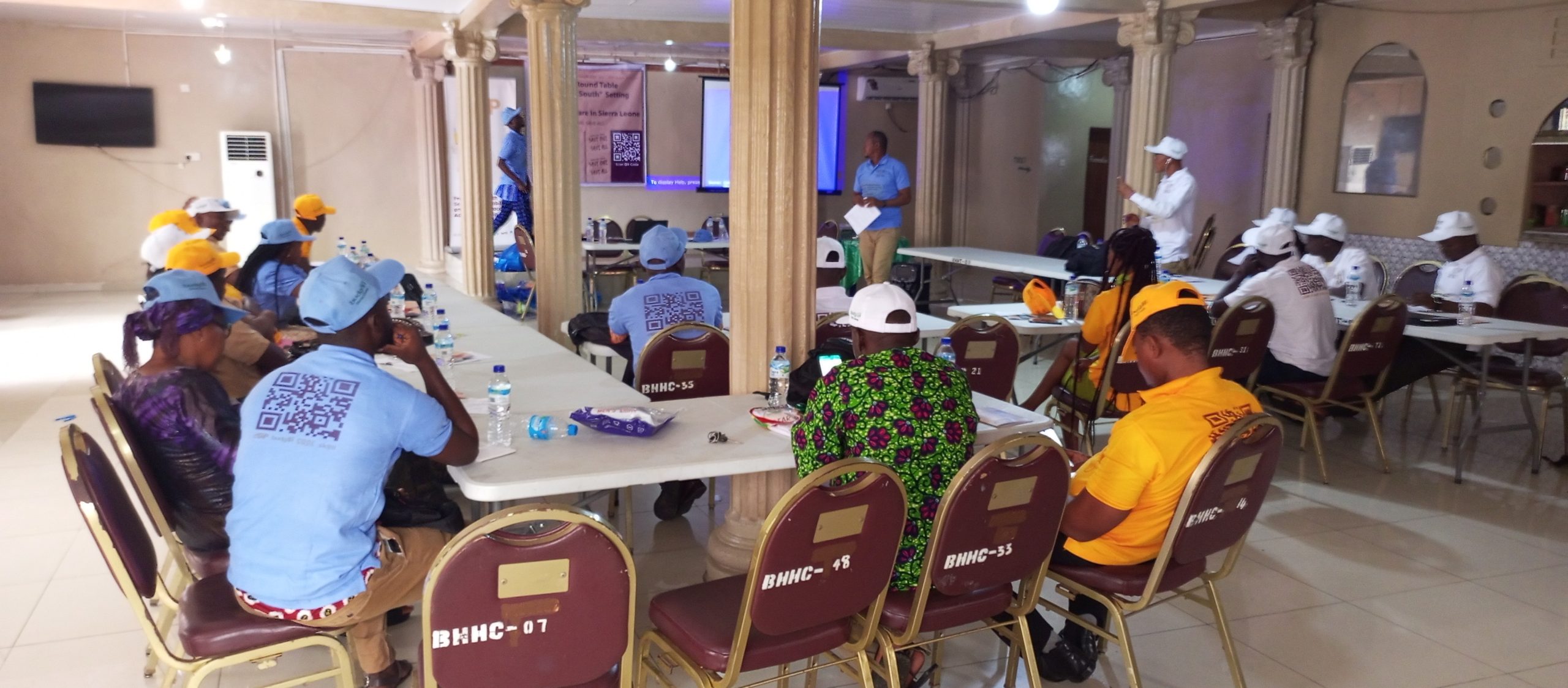BudgIT Sierra Leone is implementing phase 3 of its COVID-19 Transparency and Accountability Project (CTAP). CTAP aims to promote transparency, accountability, and citizen engagement in the management of resources allocated for COVID-19. On the 16th and 17th of June, 2023, the team engaged regional stakeholders in the Health Sector on Strengthening Health Sector Access in Sierra Leone. We held two regional health stakeholder meetings and two civic meetings in the Southern City of Bo and the Northern City of Makeni. In attendance are the District Health Medical Team, represented by the District Medical Officers, District Health Sisters, Public Health Superintendents, Community Health Officers, Nurses, other health professionals, and Civil Society organizations, to discuss the Health Sector Accountability Report and other challenges hurting the health sector in Sierra Leone.
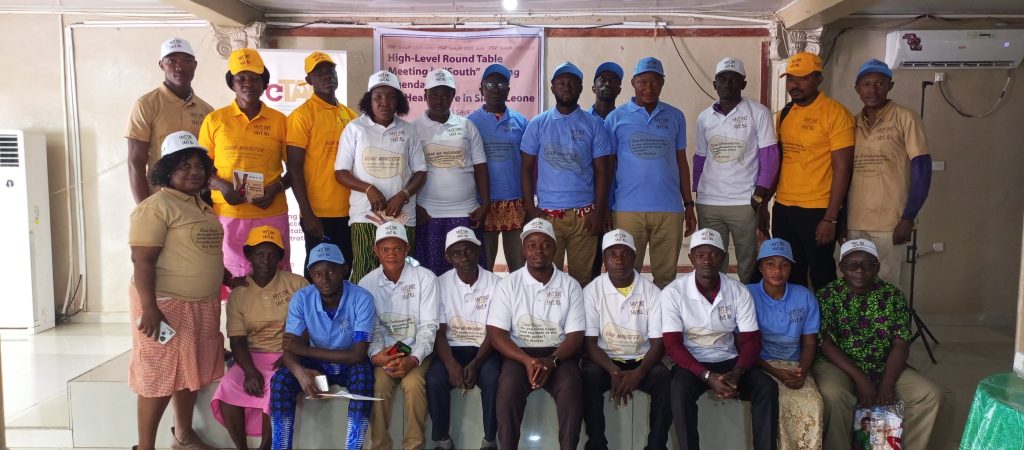
During the meetings, the BudgIT Sierra Leone team shared the background of CTAP and its impact over the last two years, including the Health Sector Accountability Report, developed based on inputs from stakeholders—citizens, healthcare workers, and government institutions—to address healthcare gaps.
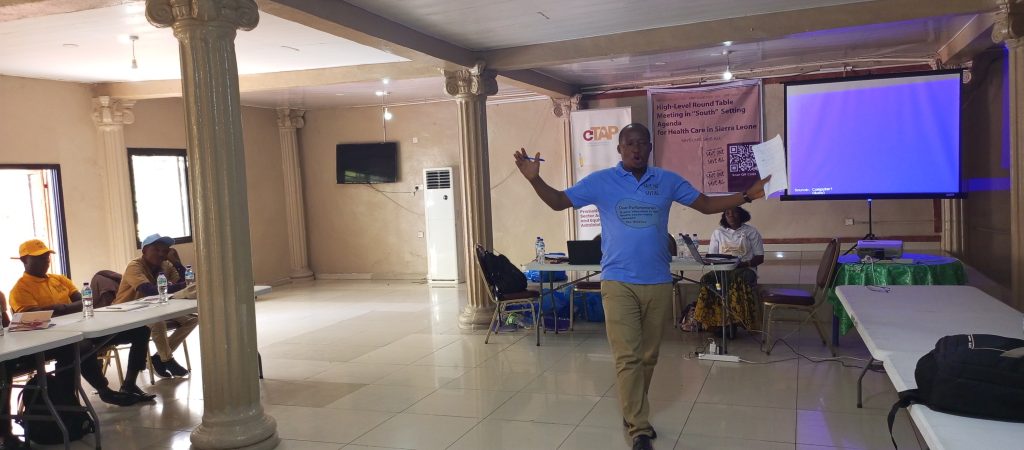
According to the HSA report, one of the primary challenges in the health sector is the government’s failure to increase healthcare funding. Over the last five years (2018–2023), the allocation to the health sector has been between 6% and 7% of total expenditure, which is less than the 15% threshold set by the Abuja Declaration, which all African Union member states signed in 2005, corruption in the health sector, poor infrastructure, policy inconsistencies, resource shortfalls, capacity gaps, brain drain, and perennial strike actions, among others. Another challenge is the poor government policy response to the COVID-19 virus and a need for more transparency and accountability in the disbursement of relief funds.
The regional coordinator South for the National Council for Civic Education and Democracy (NaCCED), also representing The Open Government Partnership (OGP), Paul A. Sengeh, stated that civic engagement or stakeholder engagement is a critical component of NaCCED/OGP’s work and that awareness raising, and civic education are key tools to increase citizen involvement in the development process.
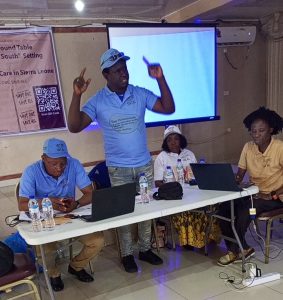
Ibrahim Jalloh, NaCCED/OGP North-East regional coordinator, said civic engagement guarantees residents’ awareness, involvement, and participation in the development agenda. He requested that the government implement the Health Sector Accountability Report recommendations in NAP5. Ibrahim S.M. Kpaka from the Civil Society Organization (Health Alert) explained that Health Care Accessibility due to inadequate health infrastructure, poor health financing, and mobility issues are the biggest challenges facing the health system in Bo district and the rest of Sierra Leone.
Matron Hawa Daramy, DHS1 Bo district, shared additional difficulties faced by residents in her community, citing inadequate health service providers, quack medical officials without government approval or pin codes, a poor referral process with poor mobility or transport, a flawed budget process, and slow fund disbursement, among others. Other participants cited inadequate funding, logistical and resource constraints, poor health infrastructure, poor data management, and corruption as binding constraints or challenges to health service delivery in Sierra Leone, among others.
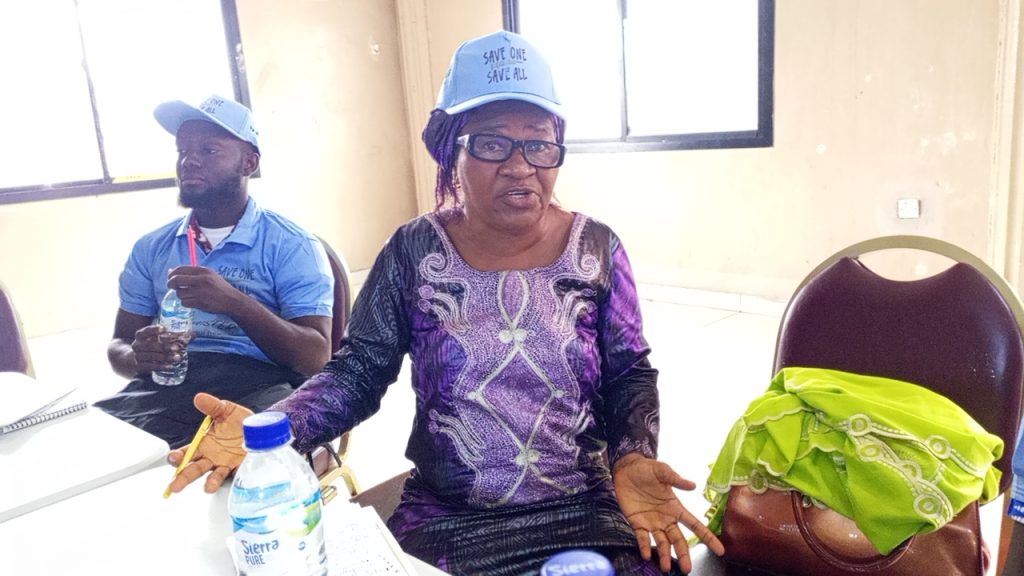
The BudgIT Sierra Leone team collated stakeholder recommendations to improve the country’s healthcare delivery systems. Some of the recommendations include, among other things, increasing the government’s allocation from 7% to 15%, as stated in the Abuja Declaration, to improve health sector access, strengthen the human resource base, invest in health infrastructure, revitalize the National Emergency Medical Services (NEMS), monitor healthcare institutions and management, increase training opportunities for health professionals, and provide adequate healthcare materials.
